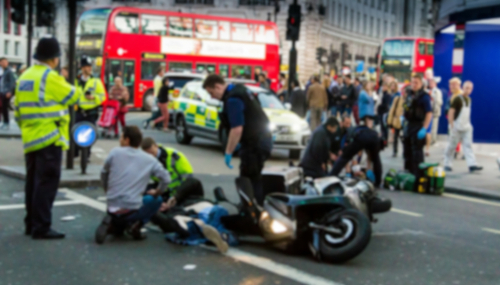Here are two interviews from separate paramedics. In the interview, they were asked about how the general public affects their work.
Paramedic 1
“People are people, and we have different personalities, different characters, and sometimes they clash and that makes our job quite difficult. Providing we are aware of that and we can use communication strategies to break down those barriers, then we will have a more successful relationship with our patients. A particularly annoying thing which is not communication-based is when you ask a patient, “Have you got any significant medical history, any surgery, any hospital admissions, any ongoing conditions?” And they say, No. Then you continue to explore the patient and you find scars, perhaps scars where they have had a bypass or an abdominal surgery of some sort. And yet you have asked them if they have got any medical past and they say no. I do not think they are deliberately trying to con us or anything. I just do not think that some patients see the significance of something that happened perhaps 20 years ago to what is going on now.”
Paramedic 2
“What a lot of patients do not realise is we are always trying to act in their best interest, It does not matter whether we are advising them to stay at home or whether we are advising them to go to the hospital. We are not doing it for our benefit. We are doing it for their benefit. And all paramedics become paramedics because they care. So when we ask you questions, answer them honestly. We are not going to tell anybody else what your medical history is or what your secrets are. But they might make a difference to the drugs and techniques used, or even the hospital we take you to. So talk to us openly and honestly. It will stay within these four walls of the vehicle. And treat us with a little bit of respect. We are trying to look after you. And we are trying to deal with your problems to the best of our abilities. We know there are time issues and we know there are delays at hospitals. So we got to you as quick as we possibly could. Now help us help you.”
For more information on training courses, visit our “Courses” page which also includes our First Responder and First Person on Scene (FPOS) Courses.

